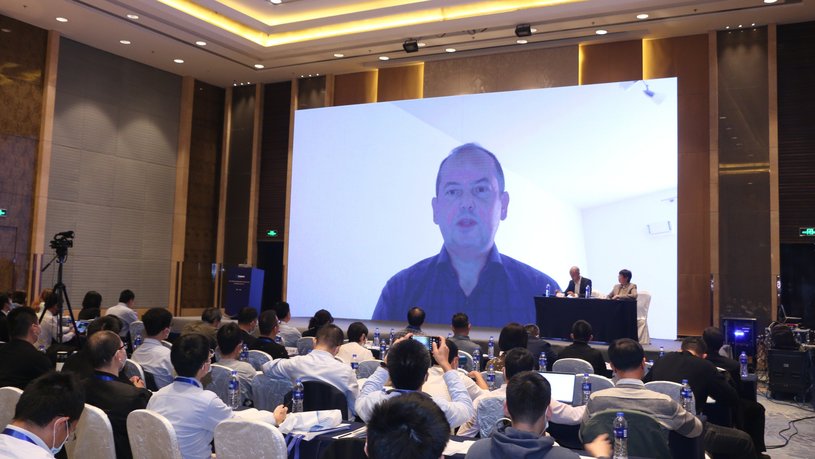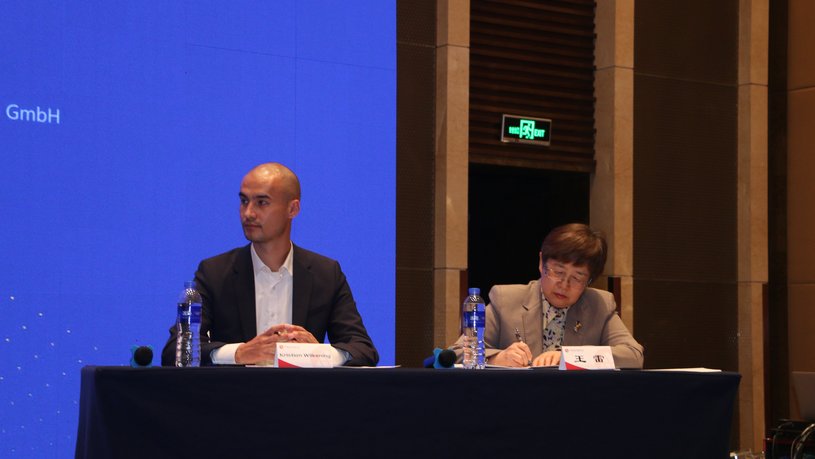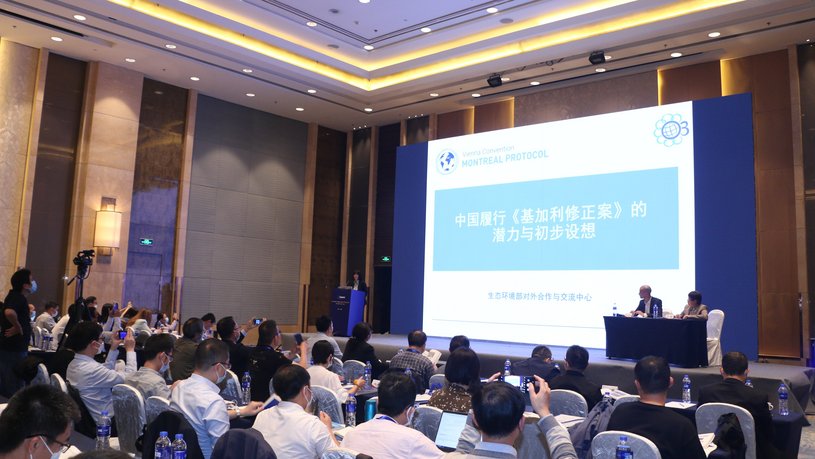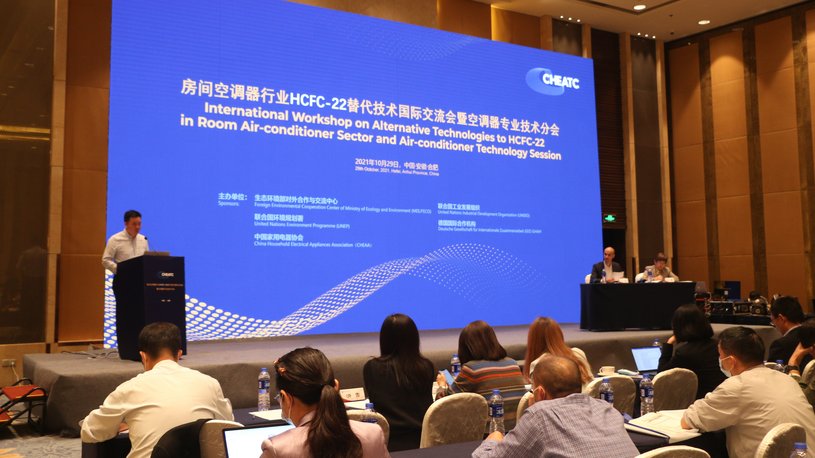On 29 October, CHEAA (China Household Electrical Appliances Association) held its 18th annual conference in Hefei, Anhui province. An important part of the event was a conference on alternative technologies to HCFC-22 in the room air conditioner sector.
The international technology conference has been held for many years. Ever since it has played a crucial role in promoting environmentally friendly technologies throughout the implementation process of the Montreal Protocol in the room air conditioning industry in China. As the Kigali Amendment to the Montreal Protocol officially came into effect in China on 15 September 2021, the Chinese RAC sector has officially started the monitoring of the relevant HCFC and HFC substances. China is responsible for almost 90% of the worldwide production of household air conditioners. This year’s International Conference on Alternative Technologies to HCFC-22 in the RAC Sector focused on two issues in particular: How to face the new challenges of controlling HFC substances, and how to promote the development of alternative green technologies.
As in previous years, the 2021 International Conference on Alternative Technologies to HCFC-22 in the RAC Sector was co-organized by the Foreign Environmental Cooperation Centre of the Ministry of Ecology and Environment (FECO/MEE), the United Nations Industrial Development Organization (UNIDO), the United Nations Environment Programme (UNEP), GIZ, and the China Household Electrical Appliances Association (CHEAA). Nearly 200 people from the refrigeration and air conditioning industry attended the conference.
Both Mr Dong Wenfu, Director of the Division on Noise and Ozone Layer Protection in the Department of Atmospheric Environment of the Ministry of Ecology and Environment (MEE) and Mr Yang Lirong, Deputy Chief Engineer and Deputy Chief Economist of FECO/MEE attended the conference in person and gave opening speeches.

Mr Bernhard Siegele, Programme Manager of GIZ Proklima, addressed the audience in a video message.
All of them emphasized that since the Kigali Amendment entered into force in China, a new phase of managing the HCFC phase-out and the HFC phase-down has started.
The RAC sector is one of the main industries for HCFC-22 consumption. As the consumption of HFC-32 and HFC-410A as an alternative for HCFC-22 has increased rapidly in recent years, the RAC sector will also be one of the key sectors for HFC control in the future.

Mr Kristian Wilkening, Project Director for non-CO2 mitigation topics at GIZ China, also attended in person and facilitated the conference together with Ms Wang Wei, General Secretary of CHEAA. They welcomed the detailed presentations of Ms Guo Xiaolin, Deputy Director of the Division of the Montreal Protocol of FECO/MEE, on “Potential and tentative ideas of China's implementation of the Kigali Amendment”, Prof. Hu Jianxin from Peking University on “Preliminary strategic considerations on management and control of HFCs in China” and Mr Ole Nielsen from UNIDO on “HFC control measures with focus on stationary AC”.
Mr Asbjørn Vonsild, Chairman of IEC 60335-2-40 WG 21, briefed the audience on the “IEC 60335-2-40 Ed. 7 status”. Ms Bente Tranholm-Schwarz of DG Climate Action of the European Commission presented the review status of the EU F-gas Regulation. Mr Marc Chasserot from shecco talked about “Federal and state policies and attitudes on HFC control in the US”.

Whether for HCFC phase-out or HFC phase-down, the development of R290 air conditioners is needed in the industry. Therefore, Dr Dai Baomin from Tianjin University of Commerce, Prof. He Guogeng from Huazhong University of Science and Technology and Mr Wu Zhidong from CVC Certification & Testing Co., Ltd. introduced updates of technology application. Last but not least, Ms Hua Xue of FECO/MEE covered the issue of “HCFC-22 elimination and HFC control in the RAC maintenance industry”.
The international conference was successfully concluded wishing for further progress in the sector.

